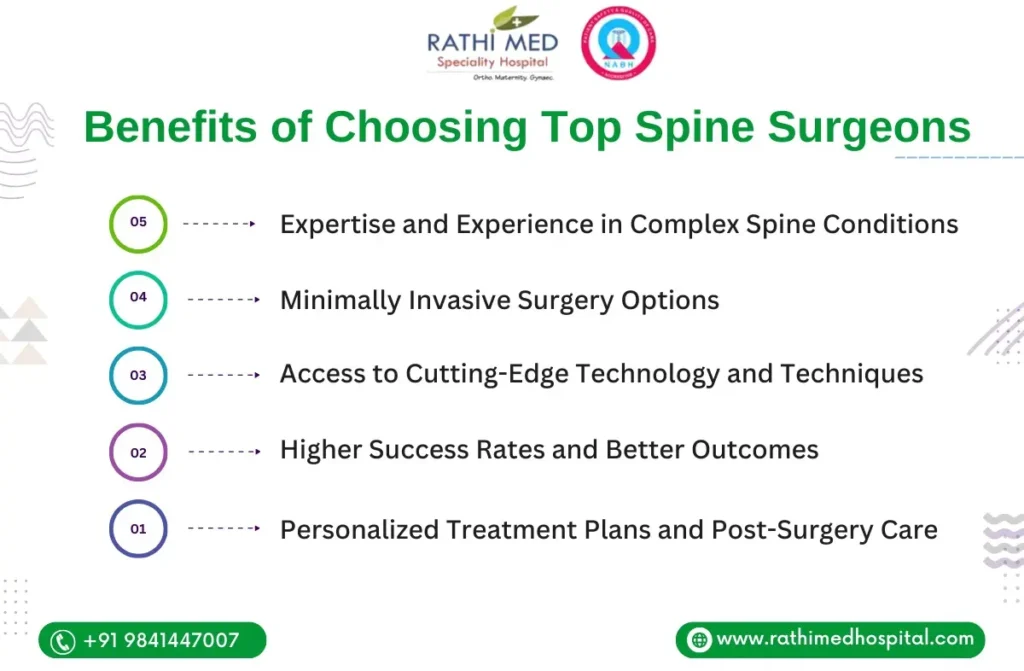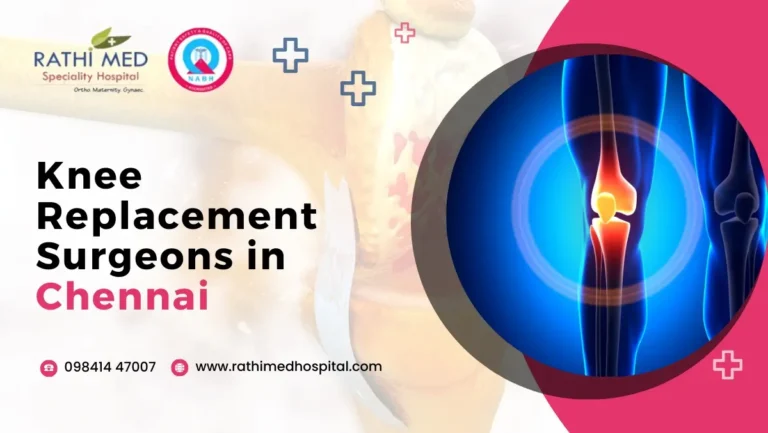How do you know when you require spine surgery? It’s a vital question for individuals dealing with chronic back or neck pain. Understanding when surgery is the right choice is crucial for improving your quality of life and addressing symptoms that non-surgical treatments fail to resolve. This blog explores the key indicators, treatment options, and how specialists guide you toward the right decision.
Overview
Spine issues can be debilitating, affecting mobility, comfort, and overall health. While many conditions can be managed with non-surgical methods, surgery may become necessary in certain cases. How do you know when you require spine surgery? By recognizing the signs and seeking timely evaluation, you can make the best choice for your long-term health.
Signs You Need Back Surgery
For those wondering if they need spine surgery, certain symptoms serve as clear indicators:
Key Symptoms to Watch For
- Chronic pain that doesn’t improve with physical therapy or medication.
- Nerve pain, such as sciatica, radiating down your arms or legs.
- Severe weakness or numbness in your limbs, indicating nerve compression.
- Loss of bladder or bowel control, which could signal serious spinal issues.
- Restricted mobility, making daily activities difficult.
These signs suggest that consulting a specialist is essential.

When Conservative Treatments Fail
Before jumping to surgical options, most spine specialists recommend trying non-surgical treatments. At Rathi Med Hospital, we advocate for:
- Physical therapy and stable physical activity.
- Over-the-counter remedies and pain management.
- Anti-inflammatory medications.
- Regular spinal injections.
How do you know when you require spine surgery? If these interventions don’t provide relief or if symptoms worsen, surgery may be the best option.
Understanding Spine Surgery
Types of Procedures
- Traditional Open Spine Surgery: Involves full exposure of the spinal anatomy, often necessary for complex cases.
- Minimally Invasive Spine Surgery: Uses advanced tools like intraoperative spinal navigation to access the problem area with less disruption, leading to faster recovery.
At Rathi Med Hospital, we aim to minimize trauma while achieving maximum benefit for the patient. Whether traditional or minimally invasive, the ultimate goal is improved symptoms, reduced degeneration, and faster recovery.
Age Limit for Spinal Surgery
Age is a common concern for patients considering surgery. So, is there an age limit for spinal surgery? While older adults may face additional risks due to conditions like osteoporosis, overall health is often a bigger determinant than age alone.
Factors That Influence Eligibility
- Bone strength and density.
- Existing medical conditions like diabetes or heart issues.
- Overall fitness and lifestyle habits.
With advancements in technology, many older patients successfully undergo surgery and experience improved quality of life.
Complications of Revision Spinal Surgery
While spine surgeries have high success rates, some patients may require revision procedures.
Common Risks in Revision Surgeries
- Increased likelihood of infection.
- Build-up of scar tissue, potentially complicating the surgery.
- Longer recovery times.
At Rathi Med Hospital, our experienced surgeons use advanced techniques to reduce these Complications of revision spinal surgery, ensuring better outcomes even in revision cases.
Signs You Need Back Surgery for Nerve Compression
When symptoms like neurogenic pain in the limbs persist despite non-surgical management, surgical intervention becomes the best course of action.
Indicators of Nerve Compression
- Severe pain radiating through the arms or legs.
- Significant weakness or paralysis in the affected limbs.
- Inability to carry out daily tasks without discomfort.
How do you know when you require spine surgery? Persistent signs of nerve compression often warrant timely surgical intervention.
Indicators for Spine Surgery
Spine surgery is considered when conservative treatments such as physical therapy, medications, and lifestyle modifications fail to provide relief. Here are some key indicators that suggest the need for surgical intervention:
- Chronic Back Pain: Persistent pain that does not improve with non-surgical treatments.
- Nerve Compression Symptoms: Numbness, tingling, or weakness in the arms or legs caused by spinal nerve compression.
- Spinal Deformities: Conditions like scoliosis or kyphosis that require surgical correction.
- Herniated Disc: Severe disc herniation that leads to pain, loss of function, or nerve damage.
- Loss of Bladder or Bowel Control: A medical emergency that may indicate cauda equina syndrome.
- Failed Non-Surgical Treatments: When all other treatment options have been exhausted without improvement.
If you are experiencing any of these conditions, it may be a sign you need back surgery to improve your quality of life and mobility.
Risks and Benefits
Like any surgical procedure, spine surgery carries both risks and benefits.
Benefits of Spine Surgery
- Pain Relief: Significant reduction or complete relief from chronic back or nerve pain.
- Improved Mobility: Restoration of movement and flexibility.
- Better Quality of Life: Increased ability to perform daily activities without discomfort.
- Prevention of Further Damage: Surgery can help prevent worsening conditions, such as nerve compression or spinal instability.
Risks of Spine Surgery
- Infection: A potential complication after surgery.
- Nerve Damage: Rare, but possible, leading to weakness or numbness.
- Blood Clots: Increased risk of deep vein thrombosis (DVT).
- Failure to Relieve Symptoms: In some cases, pain may persist even after surgery.
- Recovery Time: Some procedures require an extended period of rehabilitation.
Understanding the signs you need back surgery and weighing the risks and benefits with your doctor can help you make an informed decision about the best course of treatment.
Why Choose Rathi Med Hospital for Spine Surgery in Chennai?
Rathi Med Hospital stands out as a leading center for spine surgery in Chennai, offering:
- A multidisciplinary team of highly skilled surgeons.
- Access to advanced surgical aids like spinal navigation systems.
- Minimally invasive procedures that reduce recovery times.
We prioritize personalized care, ensuring every patient receives the treatment best suited to their condition. If our specialist isn’t the perfect fit, our collaborative network ensures you find the ideal surgeon for your needs.
Preparing for Spine Surgery
Preparation is crucial for a successful outcome. At Rathi Med Hospital, we guide you through every step.
Steps to Take Before Surgery
- Complete all necessary evaluations and imaging tests.
- Follow pre-surgery instructions, including diet and medication adjustments.
- Arrange for post-operative care and support at home.
Our focus is on reducing surgical trauma, minimizing risks, and ensuring faster recovery.
Conclusion
How do you know when you require spine surgery? The answer lies in recognizing persistent symptoms, exploring non-surgical options, and consulting an experienced specialist. Whether it’s traditional open surgery or a minimally invasive procedure, Rathi Med Hospital is here to provide expert care tailored to your needs. Contact us today for a consultation and take the first step toward a pain-free life.






